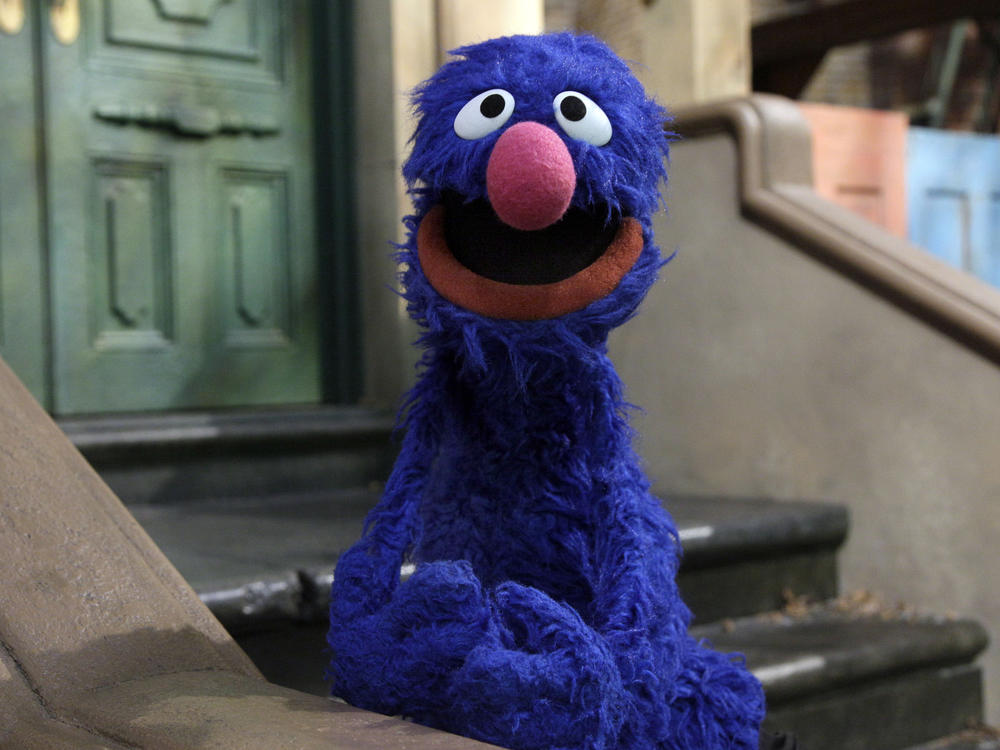Section Branding
Header Content
Grover the Muppet says he's a reporter. Not for long, joke his beleaguered peers
Primary Content
Grover, the self-described "cute, furry little monster," has famously held a wide variety of jobs since he arrived on Sesame Street in 1970.
In addition to his regular stint as a bumbling waiter, the furry blue Muppet has also worked as a mailman, professor, door-to-door salesman, driver, actor, flight attendant and hot dog vendor, to name just a few of his career moves.
On Monday, he surprised his social media followers by adding another profession to the list.
"As a news reporter, I always do my research before I break a story. I am confident to report that you are so special and amazing!" Grover posted on X, the platform formerly known as Twitter.
The announcement cheered some users, who thanked Grover for his hard work and kind words. A number of journalists welcomed him to their ranks and joked good-naturedly about his fact-checking abilities.
But others in the journalism industry — which has been decimated by unrelenting layoffs over the last year — were less excited about the news, responding with dark humor instead
"UPDATE: Unfortunately, Grover was part of the latest round of newsroom cuts," tweeted the account Stuff Journalists Like.
"I regret to report a hedge fund has since purchased Grover's paper and laid him off," reporter S.P. Sullivan wrote in a tweet with over 1,000 likes.
"[Grover] has been laid off without severance despite being part of his paper's bargaining unit," tweeted the Washington Post's Angel Mendoza. "[He] found out this morning while at the [Capitol] via a push alert from the [New York Times]."
Grover's tweet didn't quite hit as big of a nerve as his pal Elmo did last month, when he asked how everyone was doing and was inundated with frank replies from every corner of the Internet. But it did shine a light on the precarious state of the industry.
"It's hard not to be pessimistic about the future of journalism when we see friends and colleagues lose their jobs, when newsrooms shutter, and when trust in the work journalists do every day is at record lows with the public," Christopher Ortiz, the former journalist behind Stuff Journalists Like, told NPR over email.
In that way, Ortiz added, it's similar to the response that Elmo's check-in garnered.
"We're not doing ok," Ortiz said. "Journalists are not doing ok."
News outlets are cutting jobs and closing down altogether
Nearly 3,000 journalism jobs were slashed in 2023, the worst year for the industry since the COVID-19 pandemic started. Media companies overall made more than 20,000 cuts that year, according to a report by the executive outplacement firm Challenger, Gray & Christmas.
And 2024 has ushered in a fresh wave of job cuts. Some outlets have shuttered altogether.
Online news site The Messenger shut down after less than a year, taking approximately 300 jobs with it. Former employees have filed a class-action lawsuit alleging the company failed to give them proper notice.
Media company Condé Nast said last month that it would roll the music site Pitchfork into GQ Magazine, cutting jobs in the process. The Los Angeles Times laid off nearly a quarter of its newsroom in its second round of layoffs since last summer.
"You're going to see this take real effect in its pages and what it offers online," NPR media correspondent David Folkenflik told All Things Considered last month. "But [there's also] the human toll of all these journalists who clearly loved this institution — talking about having stayed up all night last night in dread of this, finishing investigative projects."
The Wall Street Journal laid off nearly 20 staffers in its D.C. bureau earlier this month. In January, Time magazine laid off 15% of its union-represented editorial employees, just days before Business Insiderannounced it would cut 8% of its staff. That same month, the publisher of Sports Illustrated said it would lay off most of the journalists on staff, leaving the magazine's future in doubt and adding to the growing void in sports journalism.
Meanwhile, journalists at places like the Chicago Tribune, Orlando Sentinel and Condé Nast — the parent company of publications like The New Yorker and Vanity Fair — have staged walkouts this year to protest planned wage and job cuts, respectively.
While not all the responses to Grover's tweet were favorable, several journalists seemed to view it as a small bright spot in a bleak landscape. Some tweeted that it made them emotional.
"It's nice to get support from a colleague in my field," wrote one.
Ortiz said Grover deserves thanks for "doing what all good journalists do — being thorough and accurate."
"For the record, @Journalistslike thinks Grover has a promising future in journalism and wishes him nothing but the best!" he added.

